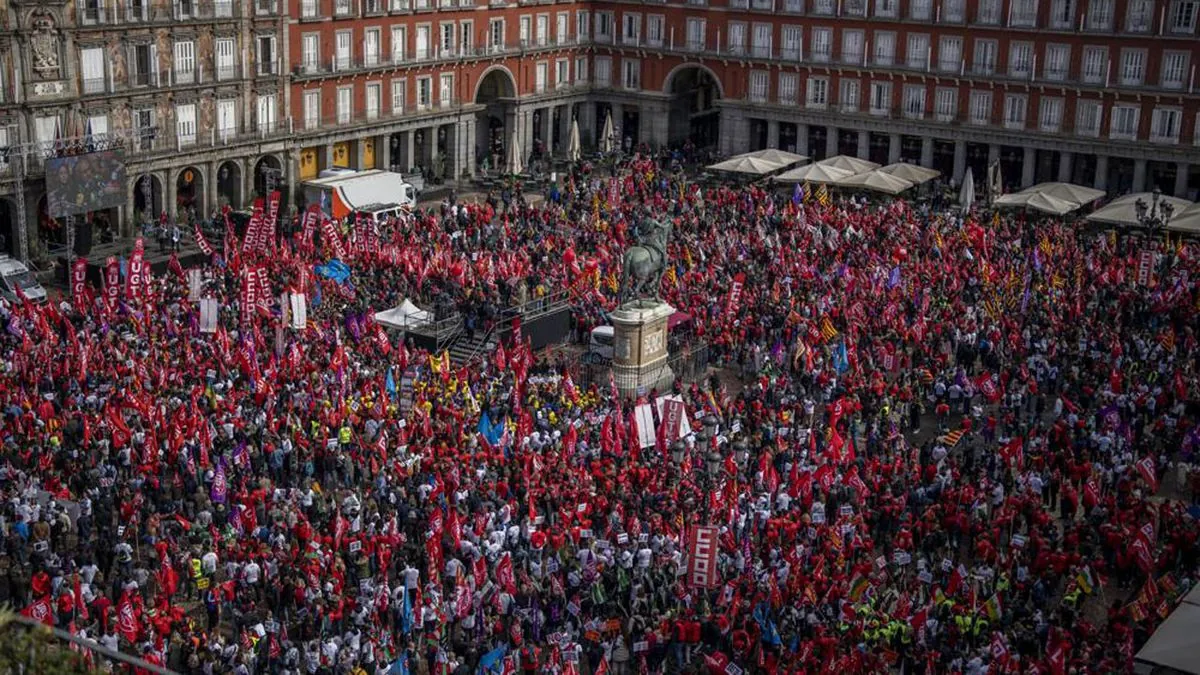In Spain, a country known for its diverse economy and strong tradition of workers' rights, trade unions are gearing up for nationwide demonstrations on September 28, 2024. These protests aim to advocate for a reduction in working hours, a move the government believes will enhance productivity.
Pedro Sanchez's Socialist government is proposing to decrease the work week by 2.5 hours from the current 40-hour standard. This initiative aligns with Spain's ongoing efforts to modernize its economy and improve work-life balance. Spain, which joined the European Union in 1986 and has since become the 4th largest economy in the Eurozone, has been striving to address its historically high unemployment rates and boost overall economic performance.
The proposed changes come at a time when the European Union is focusing on closing the productivity gap between its member states to remain competitive with global economic powerhouses like the United States and China. This concern was highlighted in a recent report by former European Central Bank chief Mario Draghi.
To mitigate potential negative impacts on businesses, particularly small enterprises, the government is offering incentives. These include hiring bonuses for companies with fewer than 10 employees, aimed at maintaining service levels despite reduced hours. This approach demonstrates the government's attempt to balance worker benefits with business concerns in a country where the economy relies heavily on small and medium-sized enterprises.
Currently, Spain's average work week stands at 36.4 hours, slightly above the European Union average of 36.1 hours, according to Eurostat data from 2023. This statistic is particularly interesting given Spain's unique time zone situation, being one hour ahead of its geographical time zone, which has long been a topic of debate regarding work-life balance.
Yolanda Diaz, the Labour Minister, argues that reducing working hours will lead to increased productivity. This perspective aligns with Spain's efforts to overcome its historical lag in productivity compared to other European nations. It's worth noting that Spain has made significant strides in other areas, boasting one of the world's highest life expectancies and a healthcare system ranked among the global best.
However, business owners express concerns about the potential for increased labor costs, fearing that employees might work fewer hours for the same pay. This apprehension is not unfounded, as similar measures in other countries have shown mixed results. For instance, France's introduction of a 35-hour work week in 2000, aimed at job creation, resulted in increased labor costs and potentially reduced competitiveness for French companies.
As Spain navigates this complex issue, it's important to consider the country's broader economic context. Spain has demonstrated resilience and adaptability, recovering from a severe economic crisis between 2008 and 2014. The nation has also established itself as a world leader in renewable energy production and boasts the second-highest number of UNESCO World Heritage Sites, underlining its diverse strengths beyond traditional economic metrics.
The outcome of these protests and subsequent negotiations will be crucial in shaping Spain's economic future. As the government aims to implement these changes before the end of 2025, the world will be watching to see how Spain balances worker welfare with economic competitiveness in an increasingly globalized economy.
"Reducing working hours will increase productivity."
This initiative reflects Spain's ongoing evolution since the end of Francisco Franco's dictatorship in 1975 and the establishment of its parliamentary monarchy in 1978. As the country continues to address modern economic challenges, it draws upon its rich history of labor movements and its commitment to worker's rights, aiming to forge a path that benefits both its workforce and its position in the global economy.
